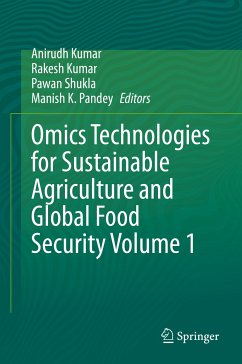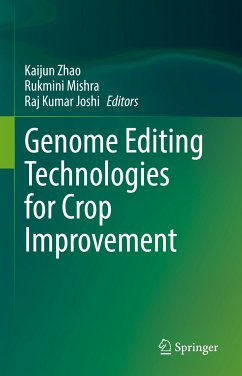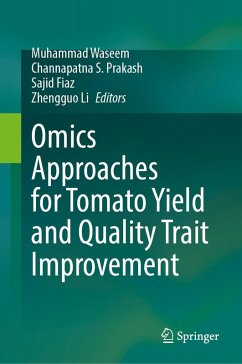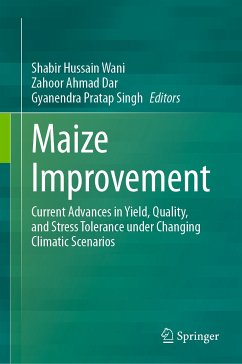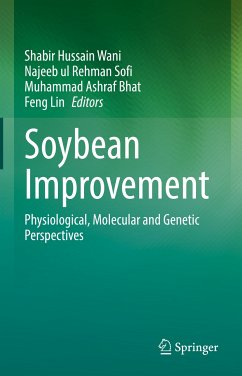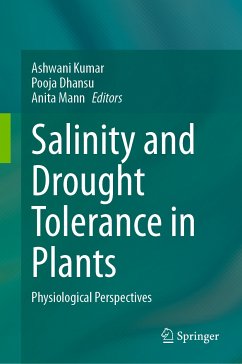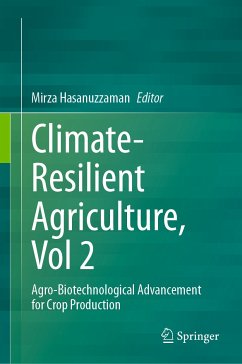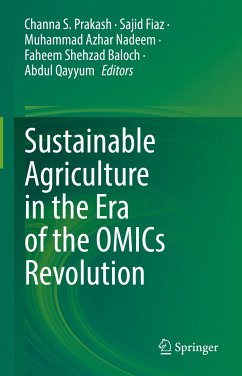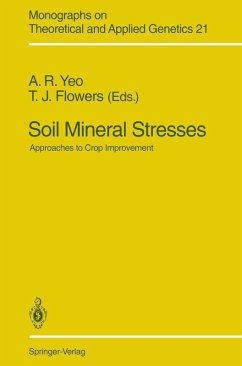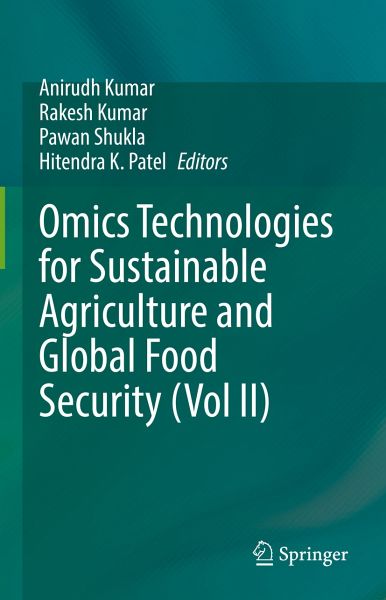
Omics Technologies for Sustainable Agriculture and Global Food Security (Vol II) (eBook, PDF)
Versandkostenfrei!
Sofort per Download lieferbar
112,95 €
inkl. MwSt.
Weitere Ausgaben:

PAYBACK Punkte
56 °P sammeln!
This edited book brings out a comprehensive collection of information on the modern omics-based research. The main focus of this book is to educate researchers about utility of omics-based technologies in rapid crop improvement. In last two decades, omics technologies have been utilized significantly in the area of plant sciences and has shown promising results. Omics technology has potential to address the challenge of food security in the near future. The comprehensive use of omics technology occurred in last two decades and helped greatly in the understanding of complex biological problems,...
This edited book brings out a comprehensive collection of information on the modern omics-based research. The main focus of this book is to educate researchers about utility of omics-based technologies in rapid crop improvement. In last two decades, omics technologies have been utilized significantly in the area of plant sciences and has shown promising results. Omics technology has potential to address the challenge of food security in the near future. The comprehensive use of omics technology occurred in last two decades and helped greatly in the understanding of complex biological problems, improve crop productivity and ensure sustainable use of ecosystem services. This book is of interest to researchers and students of life sciences, biotechnology, plant biotechnology, agriculture, forestry, and environmental sciences. It is also a useful knowledge resource for national and international agricultural scientists.
Dieser Download kann aus rechtlichen Gründen nur mit Rechnungsadresse in A, B, BG, CY, CZ, D, DK, EW, E, FIN, F, GR, HR, H, IRL, I, LT, L, LR, M, NL, PL, P, R, S, SLO, SK ausgeliefert werden.



